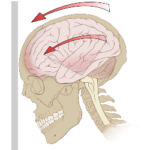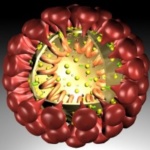
Menopause: How to Stay Healthy During the Transition
Menopause is not a disease, but rather the point in a woman’s life at which she is no longer fertile, and menstrual periods have ceased. Menopause can be accompanied by physical symptoms in some women, such as hot flashes or night sweats. It can also be seen as a positive beginning, a new phase of life with opportunities to take preventative action against major health risks. While there is no way to predict when menopause will occur, some factors influence the timing such as; removal of the ovaries, chemotherapy, and/ or smoking.
Quick Overview:
Menopause is defined as the absence of menses for 12 consecutive months, after which a woman is considered post-menopausal. The transition to menopause is referred to as perimenopause. During perimenopause the ovaries are still functioning, but their function has started to decrease. A woman’s menses may get longer, shorter, lighter, or heavier. Be sure to talk to your doctor if you have concerns about changes in your menses, as women may loose a concerning amount of blood during this time and there are a number of treatments available. It is still possible for a woman to become pregnant during perimenopause, because she may still ovulate. If you are in perimenopausal and engaging in unprotected sex with a male partner and do not desire to become pregnant, it is important to still use birth control during this time.
Frequently Asked Questions:
- Is there help for my symptoms? Yes, while some women do not experience any symptoms, many women experience one or more of the common symptoms listed below. The severity can range from mild to affecting the quality of a woman’s life. These symptoms can be addressed by a number of different treatments. How we choose those treatments will depend on your risk factors, the severity/ frequency of your symptoms, and what those symptoms are.
- When will these symptoms end? When symptoms end depend on the type of symptom. Mood changes and hot flashes for example, end within 2 years of menopause in 85% of women. Vaginal changes may continue to progress and if these are uncomfortable, you may speak with your doctor as there are a number of ways to address this.
- Am I a candidate for hormones? Hormone replacement therapy (HRT) is a topic that has a lot of media presence recently. Some sources are very weary of hormones and other tout HRT as a way to stay young and as a cure all for age related changes. The truth is that the topic of hormones is a complex one and whether or not hormones are a good option for you, varies based on your medical and family history. It is important to remember again, that menopause is a transition in life and not a disease that needs to be treated. Honoring your individual needs and risks is a part of good primary care.
- Can I have my hormone levels tested? Yes, hormone levels can be tested. But, the real question is what these tests tell us. A number of companies who sell hormone panels , claim that the results tell us more than they actually do. Normal hormone levels vary greatly from person to person and how those hormones effect us is based on a number of individual factors. For most women, looking at symptoms and history is actually more informative than testing hormone levels.
- Can I have unprotected sex? Sexually transmitted infection (STI) are increasing in prevalence in women of perimenopausal and postmenopausal ages. This is due to a number of different factors, but primarily it is due to a more active sexual life during this time and discomfort around discussing safer sex practices. Remember, just because you can no longer get pregnant after menopause, women of all ages acquire sexually transmitted diseases.
Staying Healthy:
It’s never too late to start living a healthy lifestyle. Regular check-ups should include a measurement of cholesterol, blood sugar, and blood pressure. Don’t skip routine preventative screenings such as colonoscopies. You can work with your doctor to establish a healthy lifestyle, including a nutritious diet, physical activity, and stress management skills.
Regular physical activity is important at any age, and especially as a woman transitions into menopause. Aerobic exercise strengthens the heart, and weight bearing exercises help to maintain bone strength. Regular exercise can also help keep weight off and elevate your mood. Even if you weren’t active before, you can start to increase your physical activity at any age.
Many women find that menopause is a time to celebrate a new phase of life rather than grieve the loss of youth. Here at Fairhaven Integrative Health we encourage menopause to be used as a time to: explore sources of joy, revive your sex life , make time to appreciate yourself, take pride in what you have learned, and to look at how you can give back to your community with the wisdom you have earned. We believe that you should take pride and honor everything that this new phase of life has to offer and the lives you will touch.


